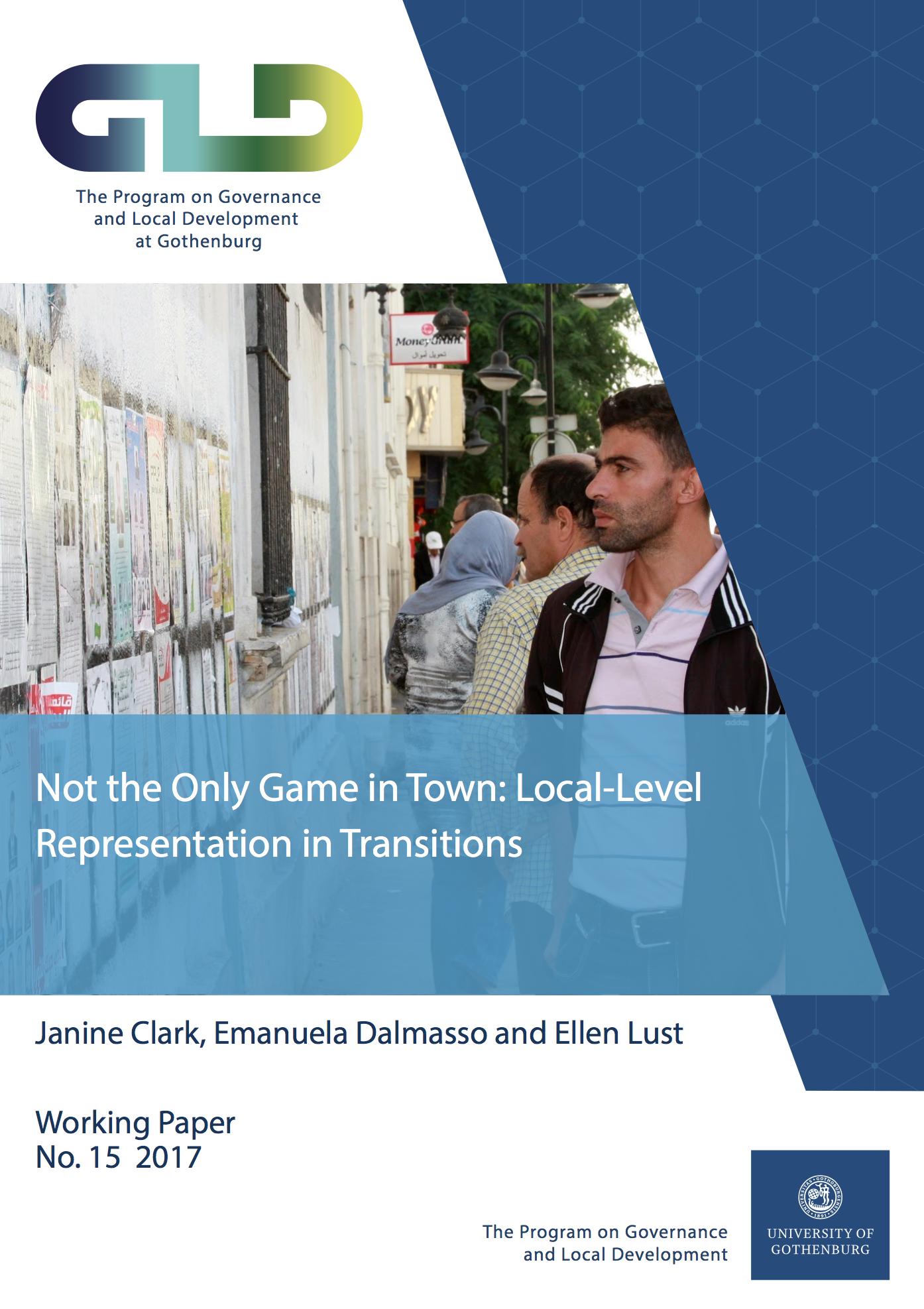No.15 Not the Only Game in Town: Local-Level Representation in Transitions
Janine Clark, Emanuela Dalmasso and Ellen Lust
Abstract
This paper examines the relationship between national and sub-national actors in the context of political transitions, exploring the debates over representation in early periods of democratic processes, how pressures to alter the composition of local councils arise as part of power struggles among central elites, and the conditions under which local councils resist or succumb to such pressures. We argue that local councils take on an important political role in transitions, becoming politicized even in the absence of local elections. We examine these dynamics in Tunisia, where the appointed special delegations (SDs) that were put in place in the aftermath of the regime collapse subsequently came under pressure for change after the October 2011 National Constituent Assembly elections. Drawing on a unique dataset of Tunisian municipalities and in-depth case studies of four Tunisian municipalities (Hammamet, Gafsa, Zarzis, and Nefta) conducted before and after the transition, we argue that the troika’s success in changing SD composition to favor their parties depended on the ability of the SDs, with support of leftist parties and the Tunisian General Labour Union (Union Générale Tunisiennedu Travail, UGTT), to fight back. Where local branches of the country’s leftist political parties and unions rallied to the SDs’ defense, appointed SD members could maintain their positions; where local SD members did not have such support; and where the troika remained united, they lost their positions. Importantly, whether SDs maintained their composition or changed, they were politicized in the process. Recognizing the conditions under which central elites are able to capture municipal councils helps to bring the role of representation and governance into the study of transitions, shedding light on local-national relations in periods of uncertainty and change.
